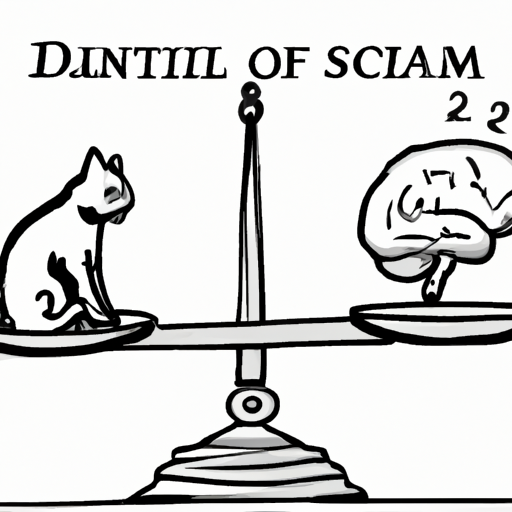As a pet lover and caregiver, you’ve probably asked yourself this question a time or two: how smart are cats compared to dogs? The answer is not as straightforward as you might think. While both cats and dogs have unique intelligence types, they express them differently due to their distinct physiological and behavioral characteristics. Let’s delve into this fascinating subject.
Table of Contents
- Understanding Animal Intelligence
- Intelligence in Dogs
- Intelligence in Cats
- Comparative Analysis of Intelligence
- FAQs
Key Takeaways
- Both cats and dogs have unique forms of intelligence which they express differently.
- Dogs have been bred for specific tasks, which influences their problem-solving skills and trainability.
- Cats’ intelligence is aligned more with their survival instincts, making them excellent hunters and explorers.
- Apples-to-apples comparison of intelligence between cats and dogs is challenging due to their different cognitive abilities and behaviours.
Understanding Animal Intelligence
Animal intelligence is a complex and multidimensional concept. It’s not just about problem-solving abilities or memory, but also includes aspects like social learning, communication, and emotional intelligence. You can refer to this comprehensive review on animal cognition for more insights.
Intelligence in Dogs
Dogs have been bred for specific tasks over centuries, from herding sheep to retrieving game. This selective breeding has honed certain cognitive abilities in dogs. They’re excellent at tasks that involve communication with humans, problem-solving, and following commands. Also, they have a notable ability to pick up on human emotions and respond accordingly. Studies even suggest that they can understand human gestures and expressions.
Intelligence in Cats
On the other hand, cats have largely been bred for companionship, which means their intelligence is different from that of dogs. Cats are solitary hunters who have retained their wild instincts. Their intelligence is more aligned with survival skills, such as hunting and exploring their environment. They have a keen sense of their surroundings and can navigate complex territories with ease. They’re also excellent problem solvers when it comes to getting what they want, such as opening doors or finding hidden food.
Comparative Analysis of Intelligence
Comparing intelligence between cats and dogs is challenging due to their different cognitive abilities and behaviours. However, it’s crucial to note that intelligence in animals, just like humans, varies widely among individuals. One dog might be smarter than another, and the same goes for cats. On a broader level, dogs seem to excel in social intelligence and trainability, while cats shine in areas that require agility and problem-solving skills.
Here’s a comparative table for a quick overview:
| Dogs | Cats | |
|---|---|---|
| Social Intelligence | Excellent | Moderate |
| Trainability | High | Low |
| Problem Solving | High | High |
| Agility | Moderate | High |
FAQs
Q: Can cats understand human commands like dogs?
A: Cats can understand human commands, but they’re less likely to follow them compared to dogs. Cats value their independence and will generally only do something if it’s in their interest.
Q: Are dogs more emotional than cats?
A: Both cats and dogs can form strong emotional bonds with their human caregivers. However, dogs are often more expressive of their emotions, while cats tend to be subtler.
Q: Can we train cats like dogs?
A: While cats can be trained, they require different methods than dogs. Positive reinforcement works best with cats, and their independent nature means training sessions should be short and engaging.
For more information on this topic, you can check out these articles from onetopdog.com on dog behavior versus cat behavior, why dogs are more trainable than cats, and how cats and dogs perceive the world.
In conclusion, both cats and dogs have their unique intelligences. As a pet caregiver, appreciating and understanding these differences can help foster a stronger bond with your furry friends.



